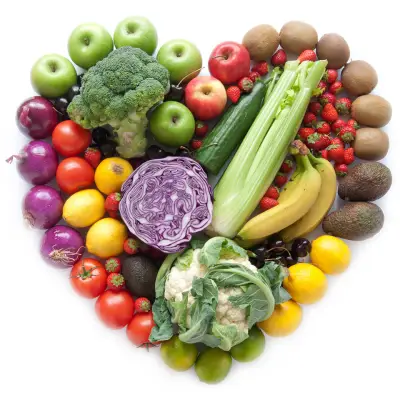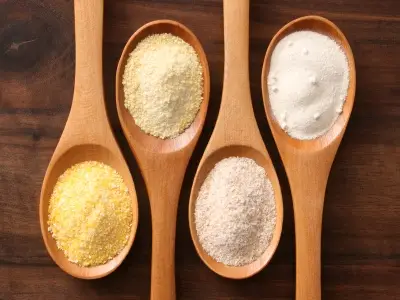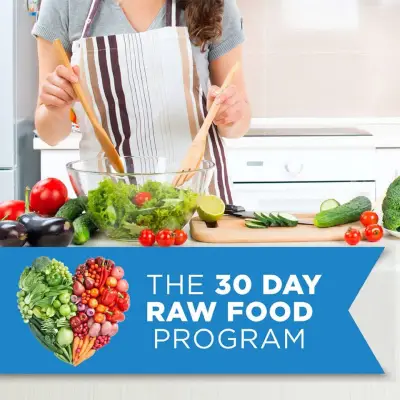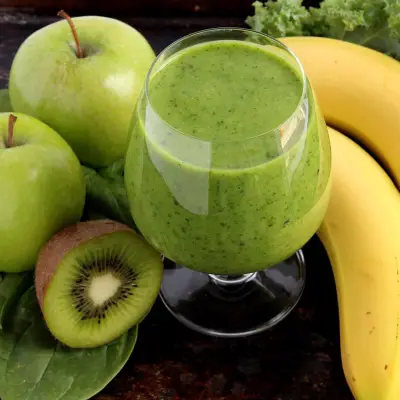Are you interested in changing your diet to improve your health and boost your energy? Today, we're diving into the fascinating world of vegan keto diets. This guide is perfect for those curious about plant-based keto diets and seeking a straightforward, engaging introduction.
But is it possible to blend two diets, and how do you make sure you’re getting the right nutrients? Let's explore how merging veganism with a ketogenic lifestyle can do wonders for your wellness.
Jump to:
What is a Keto Diet?
A ketogenic diet, or ‘keto diet’, is an ultra-low-carbohydrate diet that is high in fat with moderate amounts of protein. It typically requires you to eat less than 35 grams of carbohydrates per day. Drastically reducing the carbohydrates consumed allows the body to enter a metabolic state called ‘ketosis’. While in ketosis, your body will burn fat stores, producing ketones to be used as an energy source instead of glucose.
Recommended for you!
Best SellersWhat is a Vegan Diet?
A vegan diet focuses solely on plant-based foods and excludes all animal products, including meat, dairy, and eggs. People choose veganism for various reasons, including health, ethical, and environmental concerns. This diet showcases an array of fruits, vegetables, legumes, grains, and nuts, offering diverse nutrients and health benefits.
What is a Vegan Keto Diet?
The vegan keto diet is an innovative approach combining the principles of veganism and ketogenic eating. It focuses on foods low in carbohydrates and high in fats, substituting meat for vegan-friendly alternatives. Following the guidelines of 70% plant-based fats, 25% protein, and 5% carbohydrates, a keto vegan diet is sustainable.
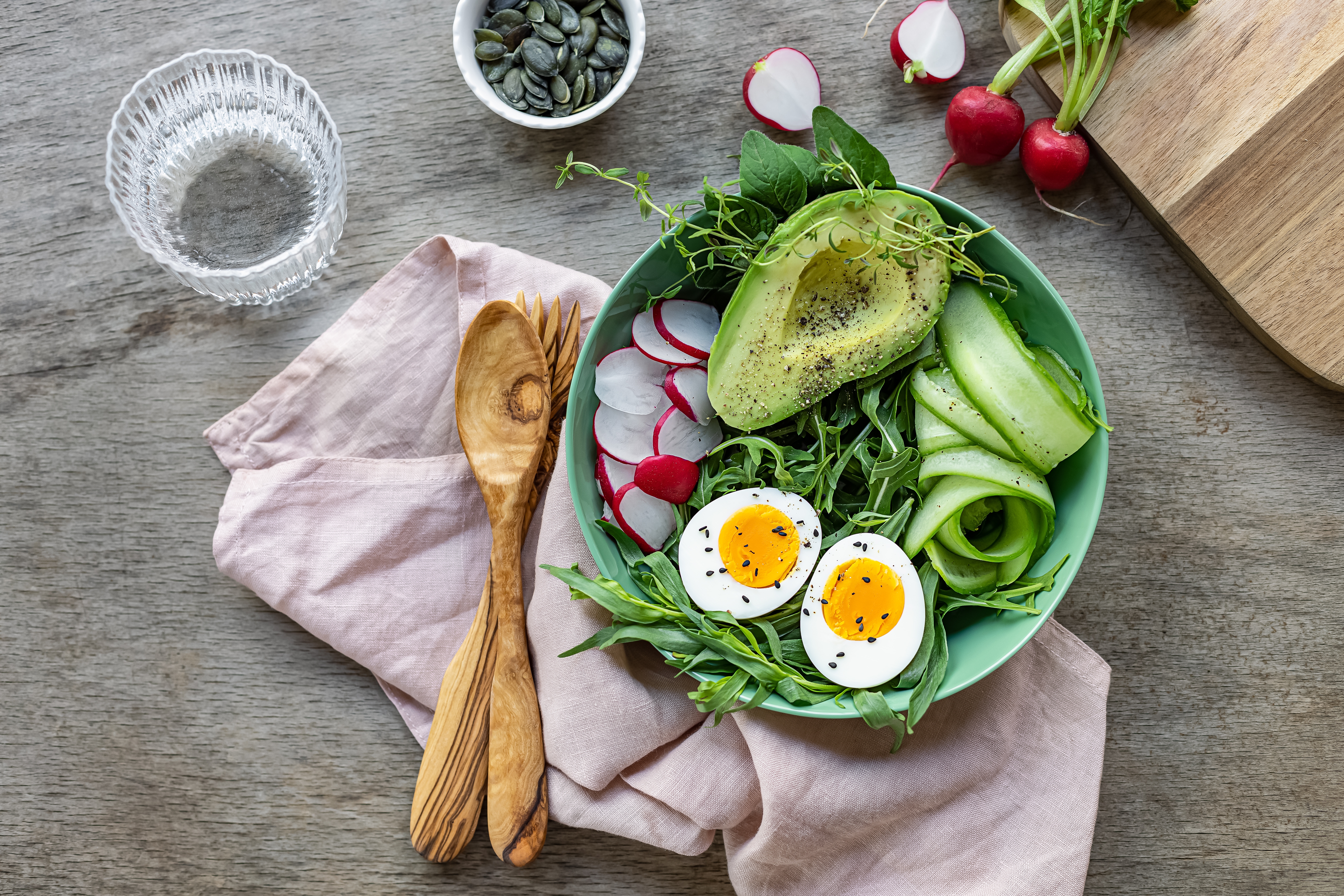
What Are The Benefits of a Vegan Keto Diet?
The vegan keto diet offers many benefits for both health and the environment:
- Weight Loss and Fat Burning: By reducing carbohydrate intake, this diet puts the body into ketosis, efficiently burning fat for energy, which can lead to weight loss.
- Stabilised Energy Levels: Focusing on fats and proteins instead of carbohydrates, it offers more stable energy levels throughout the day.
- Improved Blood Sugar Control: Low carb intake helps maintain steady blood sugar levels, which benefits overall health.
- Rich Nutrient Intake: High in essential nutrients, antioxidants, and fibre from its focus on plant-based foods.
- Reduced Appetite: The high-fat content can reduce appetite, aiding in sustainable weight management.
- Environmental Benefits: By avoiding animal products, the diet significantly lowers the environmental impact, aligning with eco-friendly practices.
- Chronic Disease Prevention: Potential for reducing the risk of certain chronic diseases due to its nutrient-rich, plant-based composition.

How to Switch to a Vegan Keto Diet
Beginning a plant-based keto diet can feel overwhelming, but with the right approach, it's a manageable and rewarding journey:
- Educate Yourself: Learn about the foods that fit into a vegan ketogenic diet.
- Ease Into It: If you're new to veganism or keto, start slowly to let your body adjust.
- Strive for Balance: Ensure your meals are well-rounded, including appropriate foods to meet your nutritional needs.
What to Eat on a Vegan Keto Diet
Knowing what to eat is essential for a vegan keto diet. Here are some staples:
1. Healthy Fats
Fats are crucial in a vegan keto diet, providing most of your daily caloric intake. Here are some examples of healthy fats and why they’re beneficial:
- Avocados: Rich in monounsaturated fats, avocados offer fibre and essential nutrients like potassium.
- Coconut Oil: A great source of medium-chain triglycerides (MCTs), coconut oil can help maintain ketosis.
- Olive Oil: High in antioxidants and monounsaturated fats, it's ideal for dressings and low-heat cooking.
- Nuts: Almonds, walnuts, and macadamias are rich in fats and provide protein and fibre.
2. Protein Sources
While a keto diet often emphasises fat, adequate protein intake is important for muscle maintenance and overall health:
- Tempeh: Made from fermented soybeans, tempeh is a complete protein source with a meaty texture.
- Tofu: Highly versatile, tofu can be used in various dishes, providing a good amount of protein.
- Plant-Based Protein Powders: Pea, hemp, and brown rice protein powders can supplement protein intake, especially useful in shakes and smoothies.
3. Low-Carb Vegetables
Vegetables are essential for their vitamins, minerals, and fibre, but it's important to choose low-carb options:
- Leafy Greens: Spinach, kale, and Swiss chard are nutrient-dense and very low in carbs.
- Broccoli and Cauliflower: These low-carb vegetables are high in fibre and nutrients.
- Other Veggies: Zucchini, asparagus, and bell peppers are also great choices for variety and nutrition.
4. Fruits
Fruit intake should be moderated due to natural sugars, but certain fruits can fit into a vegan keto diet:
- Berries: Strawberries, raspberries, and blackberries can be enjoyed in small quantities as they are lower in carbs and high in antioxidants.
- Other Low-Carb Fruits: Small servings of other fruits like melon and kiwi can be incorporated occasionally.
Understanding these food groups and incorporating them into your diet can ensure a balanced and nutritious approach to vegan keto eating.
Recommended for you!
Best SellersVegan Keto Diet Meal Plan
To give you a taste of what a vegan keto diet looks like, we’ve put together a 5-day meal plan. This plan provides a diverse range of meals, focusing on high-fat, low-carb ingredients common in vegan keto diets. Each meal is designed to be both nutritious and satisfying, helping to maintain ketosis while offering a variety of flavours and textures:
| Day | Meal & Ingredients | Estimated Calories |
| Day 1 | ||
| Breakfast | Tofu Scramble with Broccoli: tofu, broccoli, olive oil, spices | ~350 |
| Lunch | Beetroot and Toasted Pecan Salad with Balsamic Horseradish Dressing: beetroot, pecans, mixed greens, olive oil, balsamic vinegar | ~400 |
| Dinner | Baked Portobello Mushrooms on Cauliflower Mash: portobello mushrooms, cauliflower, almond milk, garlic | ~450 |
| Snack | Chia Pudding: chia seeds, coconut milk, stevia, vanilla extract | ~200 |
| Day 2 | ||
| Breakfast | Coconut Yogurt with Hemp Hearts, Chia Seeds, and Raspberries: coconut yoghurt, hemp hearts, chia seeds, raspberries | ~350 |
| Lunch | Mushroom and Thyme Soup: mushrooms, vegetable broth, thyme, coconut cream | ~300 |
| Dinner | Vegan Keto Curry: coconut milk, curry spices, tofu, low-carb vegetables | ~500 |
| Snack | Vegan Fat Bombs: coconut oil, cocoa powder, almond butter, stevia | ~250 |
| Day 3 | ||
| Breakfast | Coconut Flour Waffles with Peanut Butter: coconut flour, almond milk, peanut butter | ~400 |
| Lunch | Caramelised Onion Salad: onions, mixed greens, olive oil, balsamic glaze | ~350 |
| Dinner | Cabbage Rolls: cabbage leaves, tempeh, low-carb vegetables, tomato sauce | ~450 |
| Snack | Vegan Keto Protein Bars: vegan protein powder, nuts, seeds, coconut oil | ~200 |
| Day 4 | ||
| Breakfast | Tahini Bagel with Vegan Cream Cheese: low-carb bagel, tahini, vegan cream cheese | ~350 |
| Lunch | Tofu Miso Soup: tofu, miso paste, seaweed, green onions | ~250 |
| Dinner | Vegan Keto Chili: tempeh, bell peppers, tomatoes, chilli spices | ~500 |
| Snack | Raspberry Pie: almond flour crust, raspberries, stevia, vegan butter | ~300 |
| Day 5 | ||
| Breakfast | Vegan Keto Porridge: hemp hearts, flaxseed meal, almond milk, cinnamon | ~350 |
| Lunch | Tofu Quiche: tofu, almond flour crust, spinach, nutritional yeast | ~400 |
| Dinner | Vegan Keto Pad Thai: shirataki noodles, tofu, peanuts, low-carb vegetables | ~450 |
| Snack | Dairy-Free Chocolate Silk Pie: coconut cream, cocoa powder, almond flour crust, stevia | ~350 |
The calorie counts are approximate and vary based on portion sizes and specific ingredient choices. For your health and safety, it's important to consult your doctor or a healthcare professional before making significant changes to your diet. They can provide personalised advice and guidance to ensure that any new dietary plan is suitable and beneficial for you.
Looking for more in-depth recipes to help with vegan cooking? Check out our Vegan Keto Recipes and 5-Day Meal Plan.
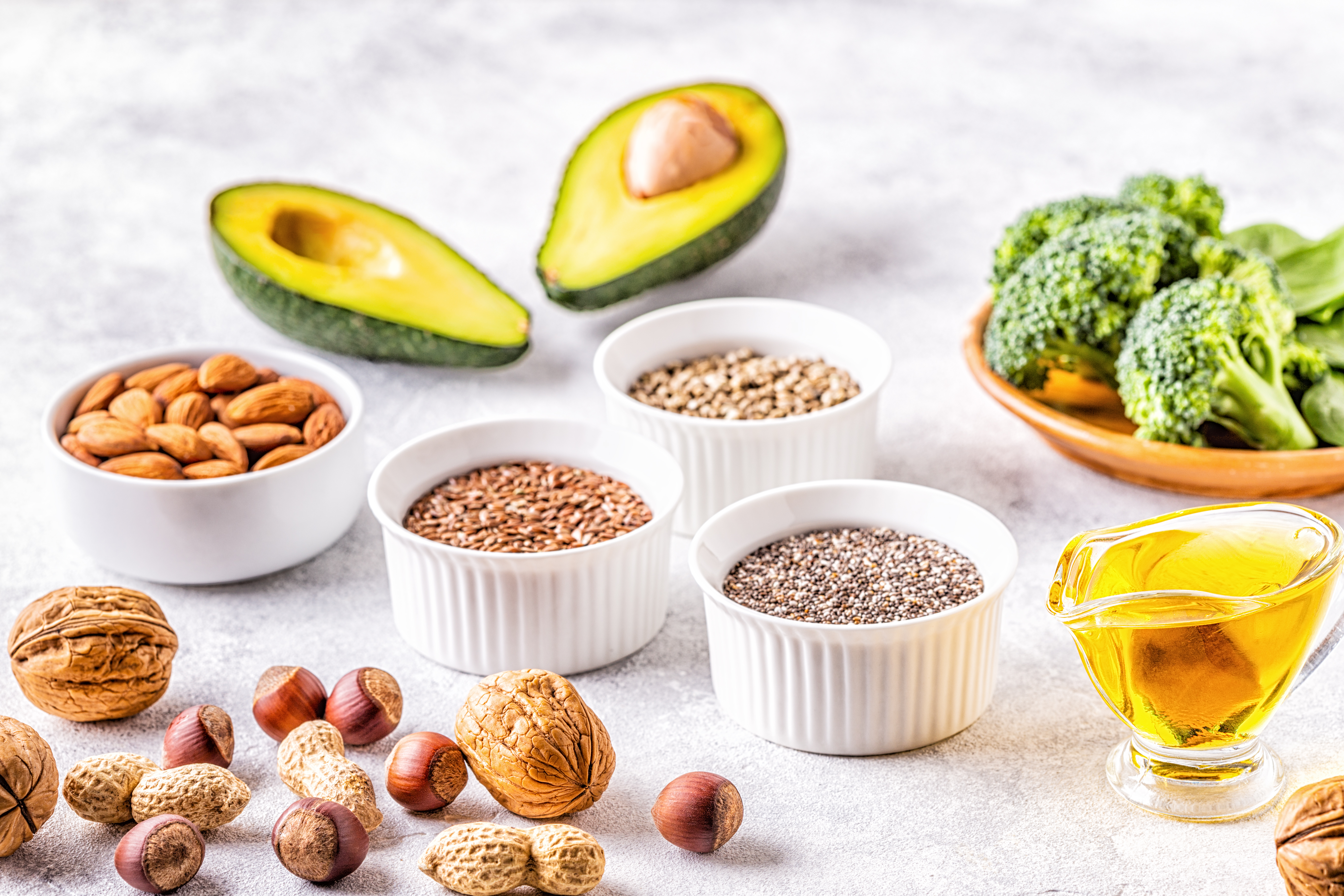
Enrol in our Vegan Ketogenic Diploma Course for £29
Adopting a vegan keto diet is a step towards a healthier, more energetic life. It's an opportunity to discover nourishing, flavourful foods while making a positive environmental impact. As you embrace this dietary adventure, remember to enjoy the process and the new tastes and experiences it brings.
Deepen your knowledge of vegan keto and gain practical skills with Centre of Excellence. Join our community of learners and take your first step towards a healthier you, where every course is an opportunity for growth and transformation.
Follow these links for exclusive access to our Vegan Ketogenic Diet Diploma Course and Vegan Nutritionist Diploma Course, each available now for the special price of only £29.

